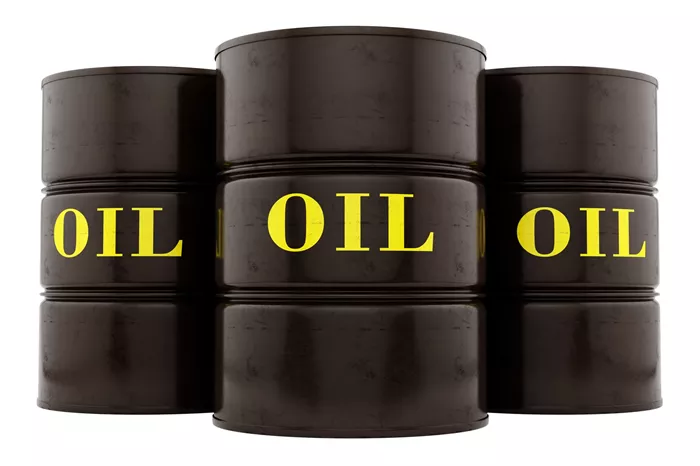Fuel oils play a crucial role in various industries and residential settings, serving as a primary source of energy for heating, power generation, and transportation. Understanding the different types of fuel oils and their specific uses is essential for efficient and effective utilization in diverse applications. This article explores three main types of fuel oils, their compositions, properties, and predominant uses in modern society.
Introduction to Fuel Oils
Fuel oils are liquid petroleum products derived from crude oil through a refining process. They are categorized based on their viscosity, composition, and intended use. The primary types of fuel oils include:
Diesel Fuel
Diesel fuel, also known as diesel oil, is a widely used petroleum-based fuel characterized by its relatively low viscosity compared to heavier fuel oils. It is commonly used in diesel engines for automobiles, trucks, buses, and other heavy-duty vehicles. Diesel fuel is classified into different grades based on its sulfur content, with lower sulfur content variants being more environmentally friendly and compliant with emission regulations.
Diesel fuel is preferred in transportation due to its efficient combustion properties, high energy density, and widespread availability. It is less volatile than gasoline and is therefore safer to store and handle, making it suitable for both commercial and industrial applications.
Heating Oil
Heating oil, also referred to as fuel oil No. 2, is primarily used for heating residential and commercial buildings. It is a refined product of crude oil and is similar to diesel fuel but with additives to enhance its performance in heating systems. Heating oil is stored in tanks and delivered to buildings where it is burned in furnaces or boilers to generate heat.
The viscosity and combustion characteristics of heating oil make it suitable for maintaining indoor comfort during colder months. It is often chosen for its efficiency and cost-effectiveness in providing consistent heating across large spaces, including homes, schools, hospitals, and office buildings.
Heavy Fuel Oil (HFO)
Heavy fuel oil (HFO) is a dense, viscous residual product of crude oil refining processes. It contains higher levels of impurities and sulfur compared to diesel fuel and heating oil. HFO is predominantly used in marine engines, large power plants, and industrial boilers where its high energy content and cost efficiency outweigh environmental concerns.
Due to its high viscosity, HFO requires preheating before combustion to reduce its viscosity and improve flow properties. It is commonly used in maritime shipping due to its affordability and availability in ports worldwide. Despite environmental regulations encouraging cleaner fuels, HFO remains a crucial energy source in industries where alternatives are limited or expensive.
See also: 5 Reasons Why Fuel Mixes With Engine Oil
Applications and Uses of Fuel Oils
Each type of fuel oil serves distinct purposes based on its composition, properties, and operational requirements. Understanding their specific applications helps optimize energy use and meet regulatory standards:
Diesel Fuel Applications
Diesel fuel is integral to transportation and industrial operations due to its:
Automotive Transportation: Powering diesel engines in cars, trucks, buses, and trains.
Industrial Machinery: Fueling generators, construction equipment, and agricultural machinery.
Marine Engines: Used in smaller vessels and auxiliary engines on larger ships.
Heating Oil Applications
Heating oil is essential for maintaining indoor comfort in:
Residential Heating: Fueling home furnaces and boilers in regions with cold winters.
Commercial Buildings: Providing heat for offices, hospitals, schools, and apartment complexes.
Industrial Applications: Heating in manufacturing processes and industrial facilities.
Heavy Fuel Oil Applications
Heavy fuel oil is predominantly used in:
Marine Shipping: Powering large cargo ships, tankers, and container vessels.
Electric Power Generation: Fueling stationary power plants for electricity production.
Industrial Boilers: Providing heat and steam for manufacturing and refining processes.
Environmental and Regulatory Considerations
While fuel oils are vital energy sources, their combustion releases pollutants such as sulfur dioxide (SO2), nitrogen oxides (NOx), and particulate matter (PM). Environmental regulations increasingly restrict the sulfur content in fuel oils to reduce emissions and mitigate air pollution. As a result, many industries are transitioning to cleaner fuels or investing in technologies that minimize emissions through:
Sulfur Reduction: Switching to low-sulfur diesel and heating oils compliant with emission standards.
Emission Control Systems: Installing exhaust gas cleaning systems (scrubbers) in marine vessels.
Alternative Fuels: Exploring biofuels, liquefied natural gas (LNG), and hydrogen as cleaner alternatives.
Future Trends and Innovations
The future of fuel oils lies in balancing energy demands with environmental sustainability. Innovations in fuel refining, combustion technologies, and alternative fuels are shaping the industry’s evolution:
Biofuels: Research and development in biodiesel and renewable diesel from biological sources.
Hybrid Technologies: Integrating electric and hybrid systems in transportation and stationary applications.
Efficiency Improvements: Advancing combustion technologies and energy management systems.
Conclusion
Fuel oils continue to be indispensable energy sources across transportation, heating, and industrial sectors worldwide. Understanding the distinctions between diesel fuel, heating oil, and heavy fuel oil is crucial for optimizing their use, enhancing energy efficiency, and meeting regulatory requirements. As industries adapt to evolving environmental standards, the future of fuel oils will see further advancements in cleaner technologies and alternative fuels, ensuring sustainable energy solutions for generations to come.
Related topics:
Western Global Introduces Non-Hazmat Multi-Tank Diesel Fuel Trailer
Fossil Fuel Consumption Hits Record High Despite Renewable Energy Surge

